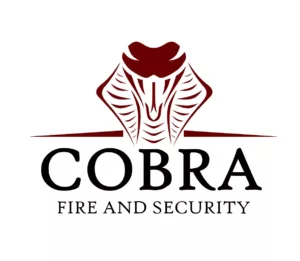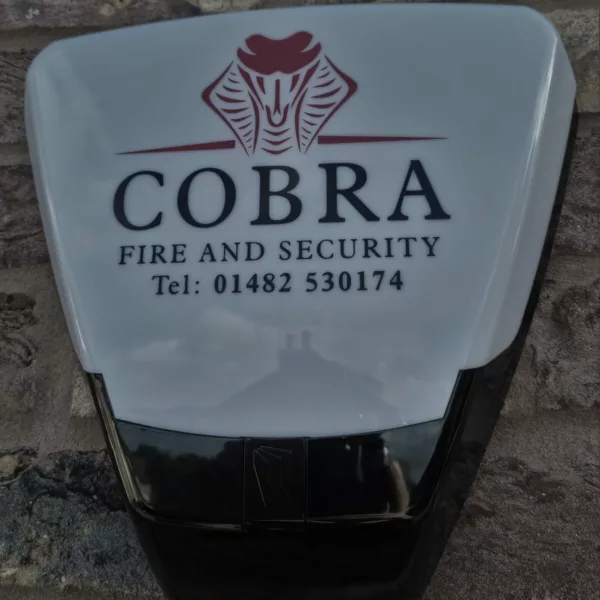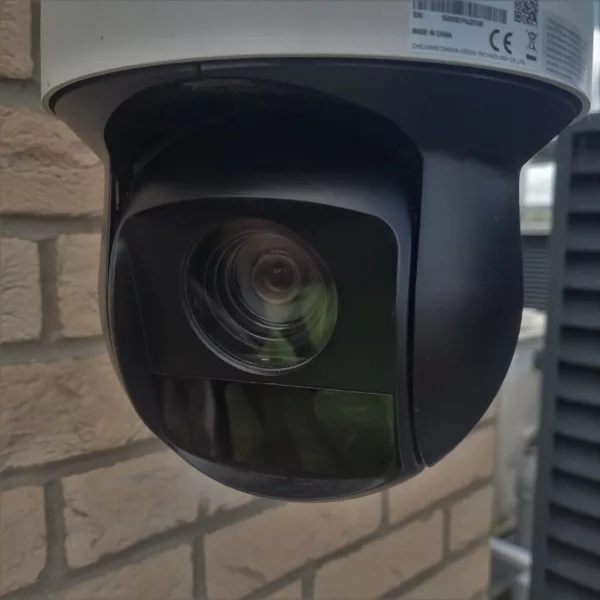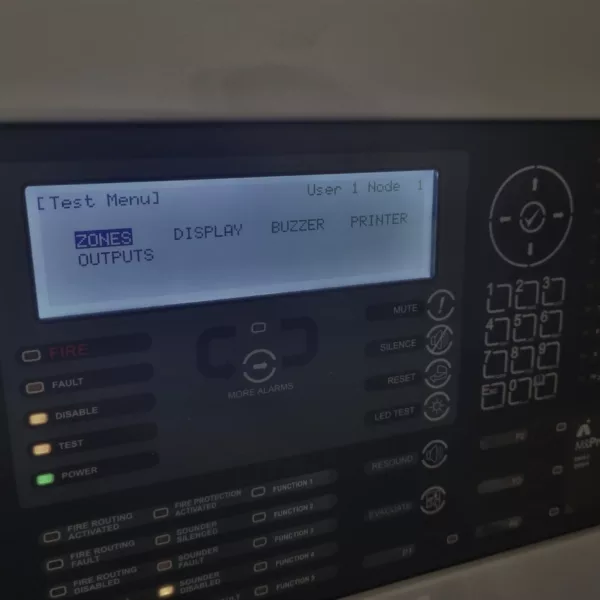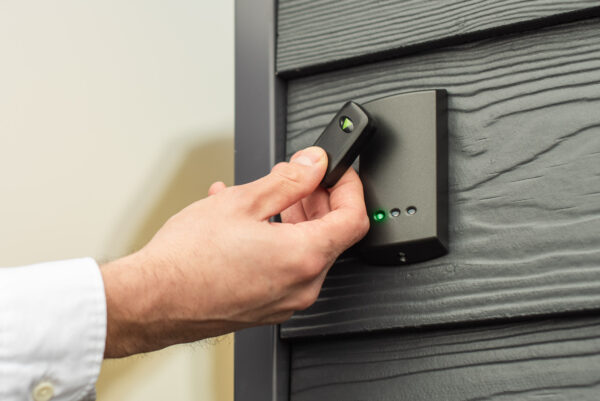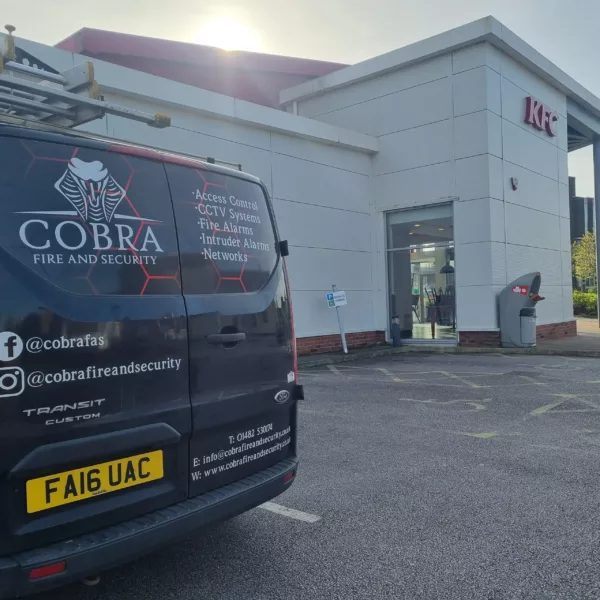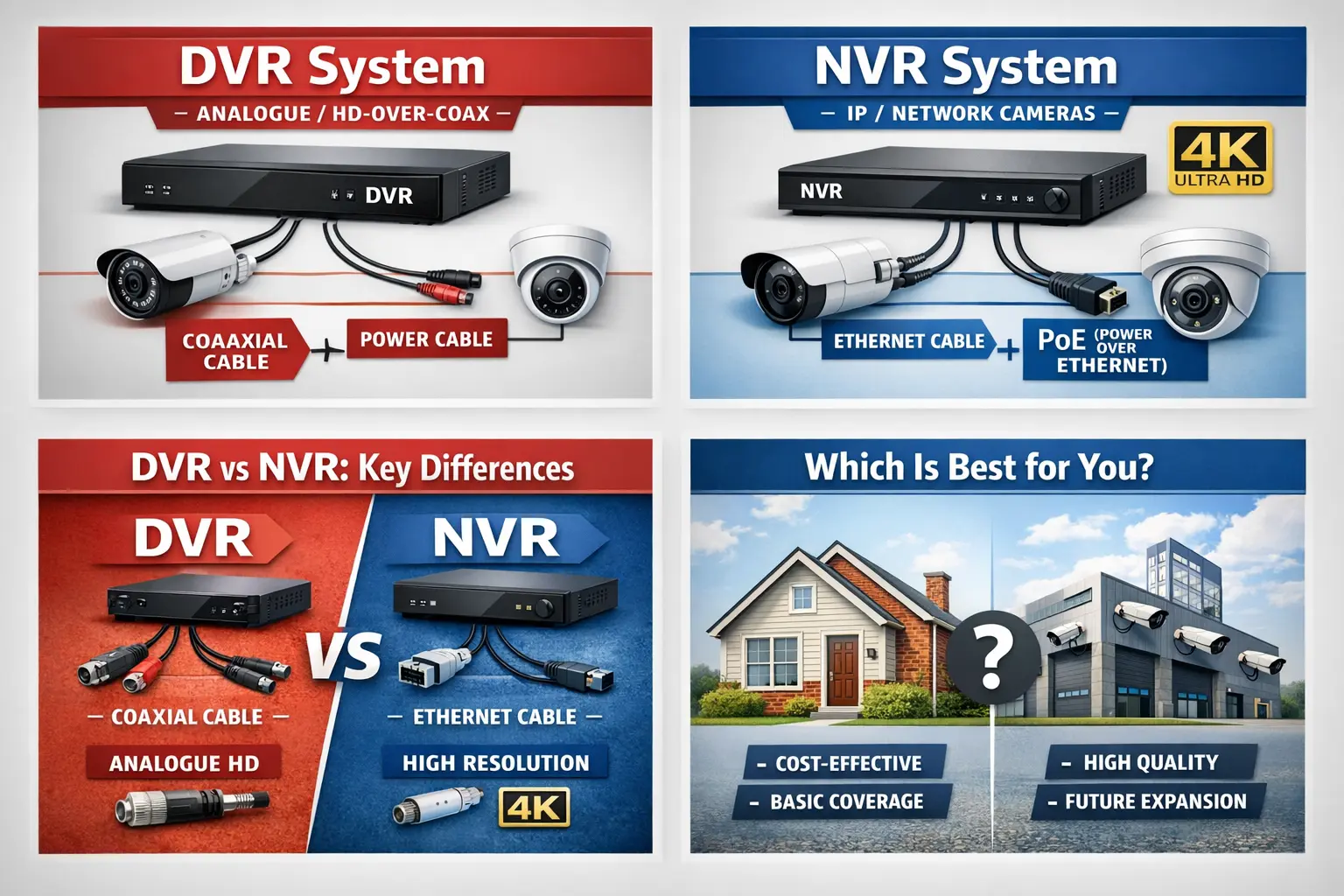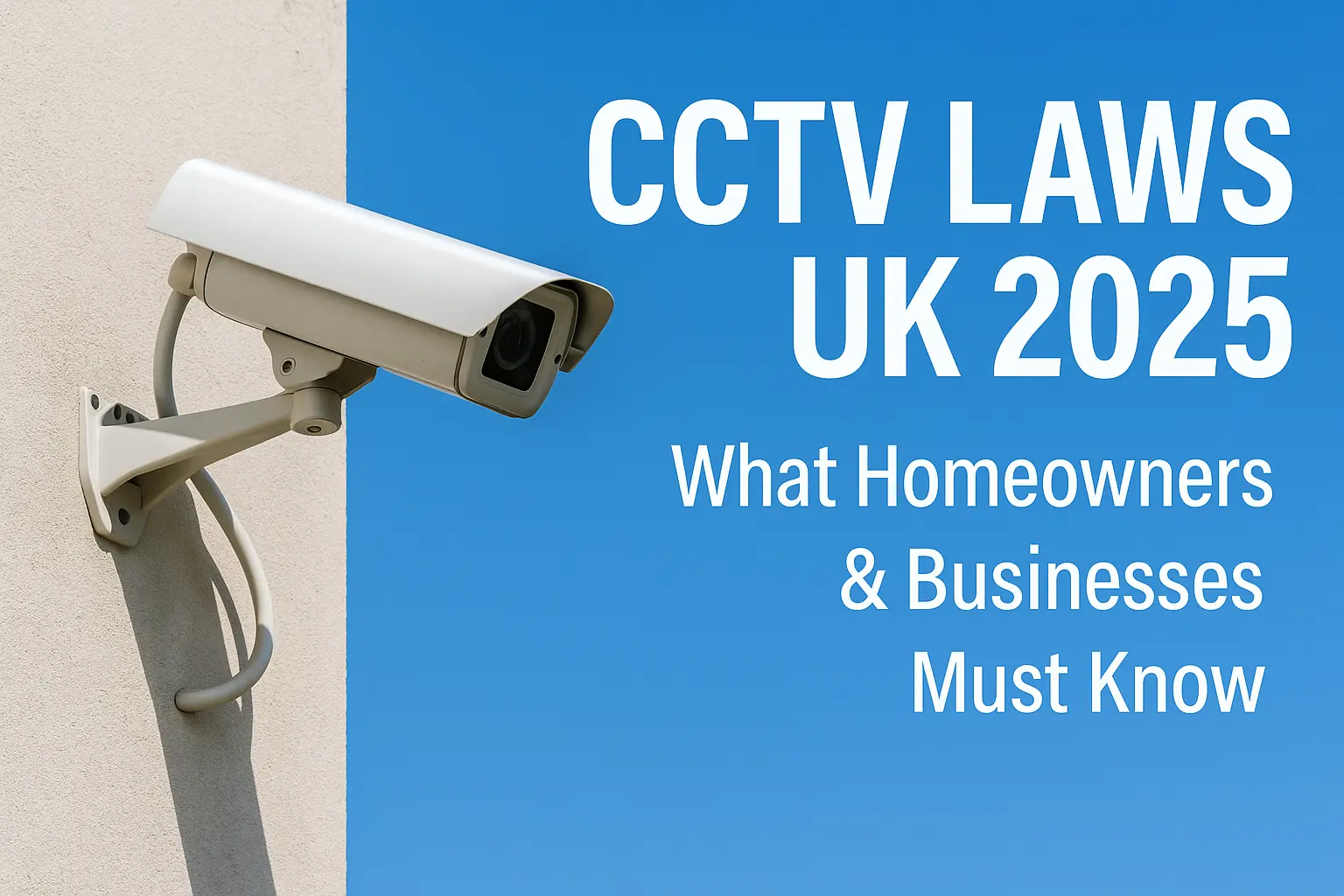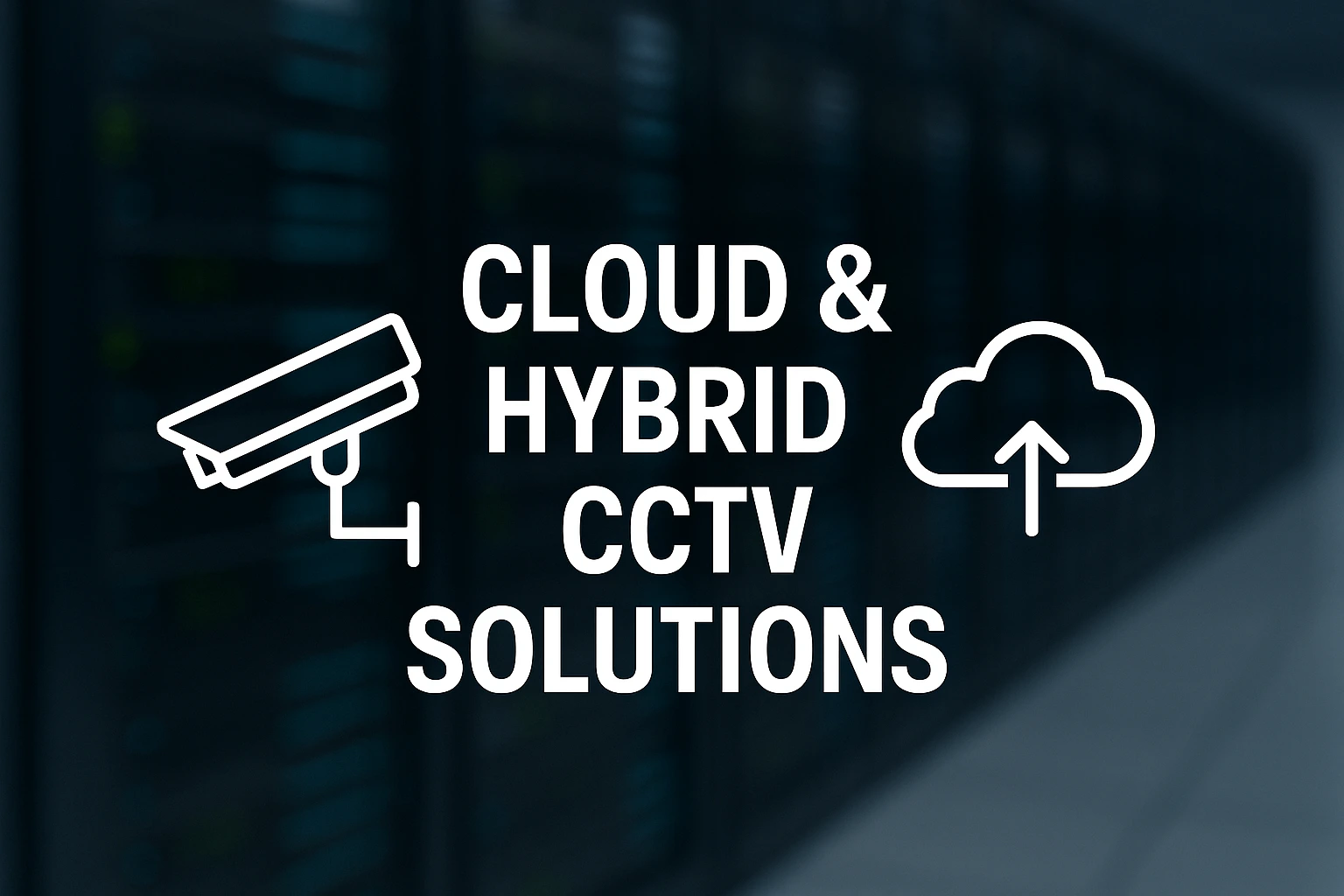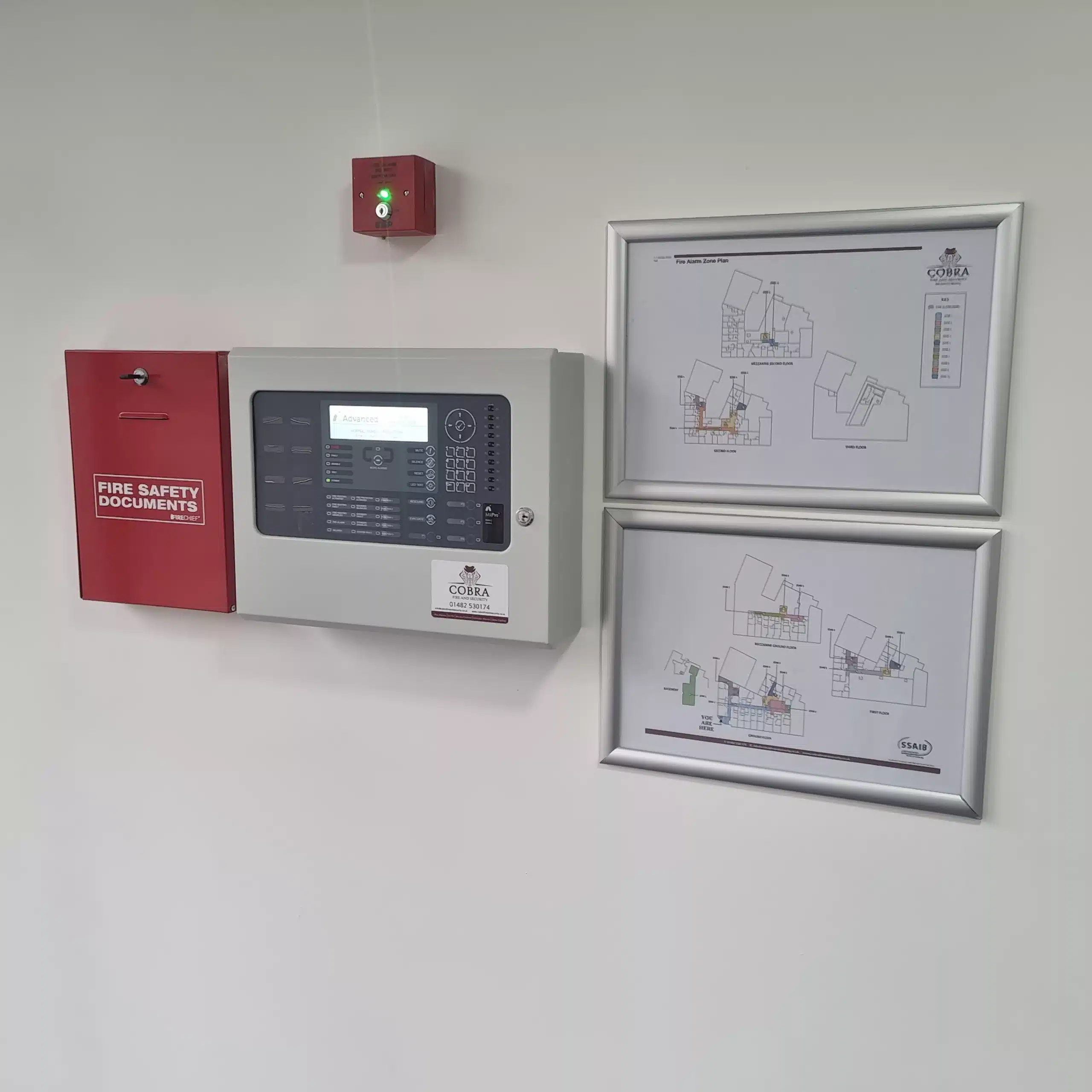
How to Choose the Right Fire Alarm for Your Commercial Property
Choosing the right fire alarm system for your business isn’t just about ticking a compliance box. The right system protects lives, safeguards property, and ensures you meet your legal responsibilities under UK fire safety law. With so many options available, it can feel overwhelming to know where to start.
At Cobra Fire & Security, we’ve designed, installed, and maintained fire alarms for offices, schools, warehouses, HMOs, and more across Hull and East Yorkshire. This guide will help you understand the different fire alarm categories and how to select the best solution for your business.
Step 1: Understand Fire Alarm Categories
Fire alarm systems in the UK are classified under BS 5839. The main categories are:
-
Category L (Life protection) – Designed to protect people by giving the earliest possible warning. Subdivided into:
-
L1 – Detectors in all areas.
-
L2 – Detectors in escape routes and high-risk areas.
-
L3 – Detectors in escape routes and adjoining rooms.
-
L4 – Detectors in escape routes only.
-
L5 – Customised to specific risks.
-
-
Category M (Manual systems) – Relies on manual call points and sounders only.
-
Category P (Property protection) – Designed to protect buildings and assets:
-
P1 – Maximum coverage for all areas.
-
P2 – Detectors only in high-risk areas.
-
For a full breakdown, see our guide to fire alarm categories.
Step 2: Consider Your Business Needs
Different businesses face different risks. For example:
-
Offices may only need Category L3 to cover escape routes.
-
Warehouses storing valuable goods often choose Category P1 for full coverage.
-
HMOs have strict requirements under BS 5839-6 for landlord compliance.
It’s important to balance risk level, legal duty, and budget when making a decision.
Step 3: Choose the Right Fire Alarm Technology
The main types of fire alarm systems include:
-
Conventional systems – Cost-effective for smaller premises, each zone is wired separately.
-
Addressable systems – Ideal for larger sites; pinpoint the exact detector that activated.
-
Wireless systems – Flexible and quick to install, especially in listed or occupied buildings.
-
Aspirating smoke detection (ASD) – Ultra-sensitive, used in high-risk or specialist environments like data centres.
Learn more about aspirating smoke detectors.
Step 4: Don’t Forget Maintenance
Choosing a system is only the start. Fire alarms must be tested, serviced, and documented to remain compliant. A professional maintenance contract helps you:
-
Meet your responsibilities under the Fire Safety Order.
-
Avoid costly false alarms and system downtime.
-
Provide insurers with evidence of compliance.
Explore our fire alarm maintenance services.
Step 5: Understand Fire Alarm Costs
When budgeting for a fire alarm system, it’s important to look beyond the installation price. Ongoing maintenance, testing, and potential false alarm management all play a role in the lifetime cost.
Factors that influence cost include:
-
Building size and layout – Larger or more complex sites need more devices.
-
System type – Addressable and wireless systems are typically more expensive than conventional ones.
-
Risk level – High-risk sites such as HMOs, care homes, and warehouses may need more advanced systems.
-
Maintenance and servicing – Regular checks are not only a legal requirement but also essential to avoid costly breakdowns.
Step 6: Check Legal and Insurance Requirements
It’s not just about safety — it’s about compliance. The Fire Safety Order 2005 makes business owners and responsible persons legally accountable for fire safety. Insurers may also demand proof that your fire alarm system is designed and maintained to BS 5839. Ignoring this can put your policy at risk.
Step 7: Integrate with Other Safety Systems
Modern fire alarm systems don’t have to work in isolation. They can link with:
-
Access control – Unlocking doors automatically during evacuation.
-
CCTV – To verify alarms and monitor evacuation.
-
AOV systems (automatic opening vents) – To manage smoke control.
Integration improves safety, speeds up response times, and helps meet regulatory requirements.
Step 8: Get a Professional Fire Risk Assessment
Before choosing a system, it’s wise to carry out (or update) a fire risk assessment. This identifies the level of fire risk in your building and highlights what system is required under UK law. A professional risk assessment ensures your chosen system matches your specific risks.
Why Choose Cobra Fire & Security?
We’re an experienced, Hull-based team delivering BS 5839-compliant fire alarm solutions across Yorkshire. Whether you need a new installation, an upgrade, or ongoing maintenance, we’ll design a system tailored to your building and risks.
Reviewed: 07/09/2025 Our articles are reviewed regularly. However, any changes made to standards or legislation following the review date will not have been considered. Please note that we provide abridged, easy-to-understand guidance. To make detailed decisions about your fire safety provisions, you might require further advice or need to consult the full standards and legislation.
Share this article
Written by : Michael Winter
Follow us
A quick overview of the topics covered in this article.
- How to Choose the Right Fire Alarm for Your Commercial Property
- Step 1: Understand Fire Alarm Categories
- Step 2: Consider Your Business Needs
- Step 3: Choose the Right Fire Alarm Technology
- Step 4: Don’t Forget Maintenance
- Step 5: Understand Fire Alarm Costs
- Step 6: Check Legal and Insurance Requirements
- Step 7: Integrate with Other Safety Systems
- Step 8: Get a Professional Fire Risk Assessment
- Why Choose Cobra Fire & Security?
Latest articles
January 27, 2026
January 27, 2026
